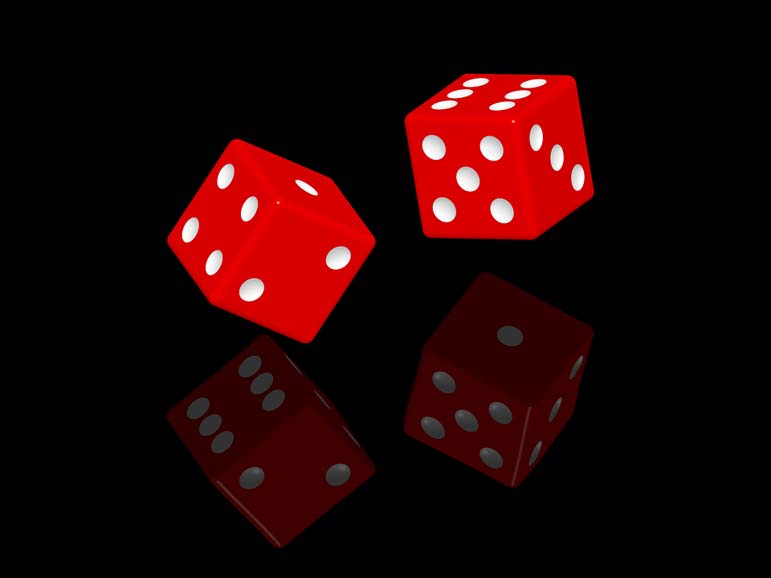
Will Donald Trump be re-elected in 2020?
Probably not, say people who bet. They give Trump only a 23 percent chance. They do pick him over all other politicians, but the favorite is "other."
I know this because I follow the betting odds at ElectionBettingOdds.com.
Yes, bettors were wrong about Trump's election and Brexit, but those were exceptions, and those votes unusual. Even Brexit's promoters predicted a loss; even Trump said he thought he'd lose when he saw the election-night exit polls.
But betting odds are usually right. It's easy to fall into the trap of thinking that if the bettors gave a candidate, say, a 65 percent chance to win, and he lost, bettors were "wrong." But remember, 65 percent means bettors also thought there was a 35 percent chance that candidate would lose .
There's wisdom in crowds, if the crowds put their money where their mouths are.
Bettors accurately picked Oscar winners, "American Idol" winners and most important elections. ElectionBettingOdds.com named VP picks Mike Pence and Tim Kaine a week before they were picked.
Even when bettors bet wrong, they are quicker to adjust than others. By 10 p.m. on election night, the odds had flipped from Clinton to Trump. An hour later, bettors had Trump at 90 percent, but CNN's Wolf Blitzer was still saying, "Hilary Clinton is now ahead in the all-important electoral college map count!"
Last week, right before France's election, reporters claimed that the terrorism in France would help elect Marine Le Pen. Saturday, Fox News headlined: "Le Pen sees Trump-like boost."
But bettors knew better. They favored Emmanuel Macron, 60 percent to 20 percent, and sure enough, he was the first-round winner.
The New York Times hyped Jean-Luc Melenchon, France's socialist candidate (of course), claiming he was "gaining steam." But betters weren't fooled. They gave Melenchon just a 5 percent chance.
A more complete track record of the bettors' predictions is posted at ElectionBettingOdds.com.
I should explain: ElectionBettingOdds.com is a website my TV producer and I created. He takes the odds from legal betting markets, mostly from the biggest and most reliable one, Betfair (based in the U.K.). Our site converts Betfair's complex formulae to percentages that are easy to understand.
Candidates' shares trade like stocks in the stock market. Since, as I write, bettors give President Trump only a 23 percent chance of winning in 2020, you Trump supporters can make a big profit if he wins. Buy 100 shares of Trump now (at 23 cents a share) and if he wins, you'll get $100 for every $23 you bet.
Actually, you Americans can't make that bet, because restrictive U.S. anti-gambling regulations prevent Betfair from dealing with Americans.
One American website, PredictIt.com, did get a special exemption from regulators that allows it to take limited bets from Americans, but they don't yet offer 2020 odds on individual candidates.
They do offer other interesting bets, however:
Think basic provisions of Obamacare will be repealed this year? Bettors give it only a one-third chance.
Tax reform fares better: There's a 58 percent chance individual income taxes will be cut.
Finally, who do Betfair's bettors predict will be Trump's competition in 2020? Mike Pence, Elizabeth Warren and, oddly, Michelle Obama.
None comes close to Trump in the odds. Pence is in second place, with just a 9 percent chance. Pence probably leads other Republicans because many bettors don't think Trump will complete one term. If Trump quits, Pence would have the incumbent's advantage. Paul Ryan and Ted Cruz are the next Republicans, but both are below 3 percent.
I am surprised Hillary Clinton does so poorly. Elizabeth Warren leads all Democrats with 8 percent. In fact, bettors give Joe Biden, Senator Bernie Sanders and even Michelle Obama (5 percent) better shots than Clinton (3 percent).
Of course, it's early. We should be skeptical of predictions of events four years in advance. But when I want the most accurate possible clues about the future, I turn to ElectionBettingOdds.com.
Those odds aren't perfect, but they're better than pundits, polls and other alternatives.
We'd have more valuable predictions if nervous U.S. lawmakers would just legalize political prediction markets. Unfortunately, they've been too close-minded to do that.
Comment by clicking here.
Award-winning news correspondent John Stossel is currently with Fox Business Network and Fox News. Before making the change to Fox News, Stossel was the co-anchor of ABC News's "20/20." Eight to 10 million people watched his program weekly. Often, he ended "20/20" with a TV column called "Give Me a Break," which challenged conventional wisdom.


 Contact The Editor
Contact The Editor
 Articles By This Author
Articles By This Author